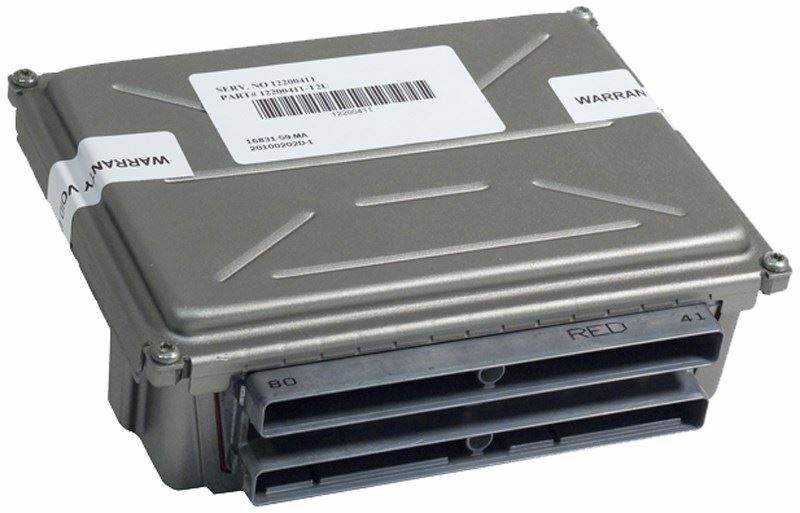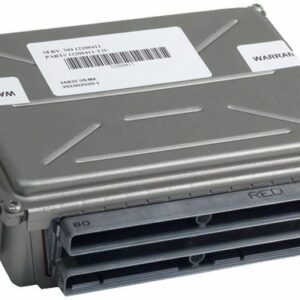Restore Peak Performance to Your GM Vehicle
Is your 1998 Camaro, Firebird, or Grand Prix running rough, stalling unexpectedly, or throwing a persistent Check Engine Light? Before you start replacing sensors and chasing electrical gremlins, the root cause is often the vehicle’s central computer: the Powertrain Control Module (PCM). As a technician with over two decades of experience, I’ve seen firsthand how a failing PCM can create a host of frustrating and hard-to-diagnose issues. This isn’t just a part; it’s the solution to getting your car back to the reliable, smooth-running condition you depend on.
This module, part number 9356741, is a direct-fit replacement for a wide range of 1998-1999 General Motors vehicles. The most significant benefit we offer is our professional programming service. We flash the module with the latest GM software updates specific to your vehicle’s VIN before it ships. This means no expensive trips to the dealership for programming, saving you time and hundreds of dollars. It arrives at your door ready for installation.
From the Diagnostic Bay: The Case of the Phantom Stall
I once had a 1998 Pontiac Bonneville with the 3.8L V6 in my bay that was driving the owner crazy. It would randomly stall at traffic lights, but only when warm. No codes were stored consistently. We checked fuel pressure, the ignition control module, and the crank sensor—all tested fine. On a hunch, I monitored the PCM’s data stream during a long test drive. Just before it would stall, I saw the injector pulse width data go haywire. The internal drivers in the original PCM were failing under heat soak. We installed a VIN-programmed module just like this one, and the problem was solved instantly. It’s a classic failure mode for these units after 20+ years of heat cycles.
Common Signs of a Failing PCM
If your vehicle is exhibiting any of the following issues, a faulty engine computer is a very likely culprit. A failing PCM can often trigger diagnostic trouble codes (DTCs) like P0601, P0602, or P0606.
- ✔ Check Engine Light is on with no clear cause
- ✔ Engine stalling, stumbling, or hesitating
- ✔ Rough or erratic idling
- ✔ Noticeable decrease in fuel economy
- ✔ Harsh or incorrect automatic transmission shifting
- ✔ Vehicle fails to start intermittently or at all (no-start condition)
- ✔ Communication errors with diagnostic scan tools
A Straightforward Guide to Installation
Replacing the PCM on these GM vehicles is a manageable job for a DIYer with basic hand tools. Follow these steps carefully for a successful installation.
- Safety First: Always disconnect the negative terminal from your vehicle’s battery and secure it away from the post to prevent accidental reconnection.
- Locate the PCM: On most of these models, the PCM is located in the engine compartment, often inside the air filter housing or mounted to the fender well. On some models like the Alero or Grand Am, it may be under the dash. Consult a service manual for your specific vehicle if you’re unsure.
- Disconnect the Harnesses: Carefully unclip and remove the electrical connectors from the old PCM. These connectors have locking tabs that need to be released. Avoid pulling on the wires themselves.
- Remove the Old Module: Unbolt the old PCM from its mounting bracket. Keep the hardware as you will reuse it.
- Install the New Module: Mount your new, pre-programmed PCM onto the bracket and secure it with the original hardware.
- Reconnect Everything: Firmly plug the electrical harnesses into the new module until they click into place. Reconnect the negative battery terminal.
- Perform Security Relearn: Many GM vehicles of this era require a simple security relearn procedure to allow the car to start. Typically, this involves turning the key to the ‘ON’ position for 10-15 minutes, then ‘OFF’ for 10 seconds, and repeating this cycle three times. Your vehicle’s specific procedure may vary slightly.
Verified Vehicle Compatibility
This module is a guaranteed fit for the following vehicles, matching service numbers 09356741, 16236757, 9357034, 9357440, and 9366314. Please provide your VIN upon purchase to ensure perfect programming.
Frequently Asked Questions
Frequently Asked Questions
Why do you need my VIN?
Your Vehicle Identification Number (VIN) allows us to access the exact GM software calibration for your car’s specific engine, transmission, and options. This ensures the Powertrain Control Module works perfectly right out of the box, controlling everything from fuel mixture to shift points correctly.
Is this part difficult to install myself?
For most individuals with basic mechanical skills, this is a plug-and-play installation. The main steps are disconnecting the battery, swapping the module, and performing a simple security relearn procedure. Our detailed instructions above walk you through the process.
Will this fix my ‘Check Engine’ light?
If the Check Engine Light is caused by an internal PCM failure (like DTC P0601), then yes, this part is the correct fix. However, it’s always best to have your vehicle scanned for codes to confirm the diagnosis, as the light can indicate many other potential issues.
What is the security relearn procedure?
It’s a simple process that syncs the new PCM with your vehicle’s anti-theft system. It typically involves cycling the ignition key and waiting for a set period. Without it, the car may not start. The procedure takes about 30 minutes and requires no special tools.



